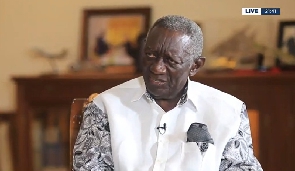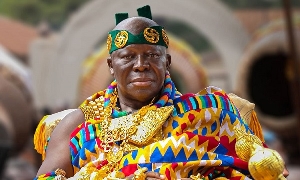Business News of Tuesday, 18 August 2020
Source: thebusiness24online.net
Coronavirus magnifies Africa’s need for economic integration – AU Chairperson
The Chairperson of the African Union Commission Moussa Faki Mahamat says the COVID-19 pandemic has amplified the need to accelerate Africa’s economic integration and industrial development drive to overcome the severe strain on the continent’s economy.
“The pandemic has magnified the urgent need for speed to accelerate economic integration on the continent. We have the opportunity to rethink our value chains and reduce our reliance on traditional supply routes.
To ensure we can contain future pandemics, we must integrate our markets, accelerate industrial development, enhance competitiveness to ensure a prosperous, peaceful and integrated future for our people,” Mr. Mahamat said in Accra.
He said this as during a brief handing over ceremony of the Africa Continental Free Trade Area Secretariat building in Accra on Monday.
According to him, the closure of borders to contain the pandemic, coupled with the shutdown of industries and poor infrastructure, severely disrupted Africa’s already weak supply chains — causing shortages of basic essentials and throwing 29 million people more into poverty.
The African Development Bank projects growth to contract 3.4 percent and more than 7 percent for the continent’s smaller economies in the worst-case scenario for 2020 but forecasts Africa’s economy to rebound 3 percent in 2021 depending on the effectiveness of the continent’s COVID-19 recovery programmes.
The contraction is attributable to export adjustments affecting primary material exporters, which has been projected to cause a regional average loss of about 5 percent in fiscal revenue.
AfCFTA dream
The African Continental Free Trade Area (AfCFTA) represents by far the most far-reaching enterprise yet undertaken to create an integrated economy of 1.2 billion market population, strengthen intra-continental value chains and ensure logistic growth to overcome the pandemic.
The Secretary-General of AfCFTA Wamkele Mene also speaking at the event remarked that: “aggressively implementing the free trade deal has the potential to be Africa’s economic recovery tool, boosting intra-Africa trade has the potential to contribute to Africa’s economic recovery year on year, from 2021.”
With a combined GDP of US$3.4 trillion, the World Bank projects a successful implementation of AfCFTA will increase intra-African trade by 81 percent by 2035. Within the same period, the bank estimates that AfCFTA will lift 30 million Africans out of extreme poverty and 68 million from moderate poverty.
AfCFTA Operationalisation postponed
The operational launch of Africa’s ambitious trade deal, AfCFTA was slated for July 2020 but had to be postponed to 2021 due to the COVID-19 pandemic.
Discussions on key elements of the programme such as rules of origin, customs union, illegal transshipment prevention among others are still ongoing with member states demanding fair trade practices to protect local industries.
A total of 28 member states out of the 54 countries that signed the deal have ratified the agreement with Eritrea the only nation yet to join the trail.













